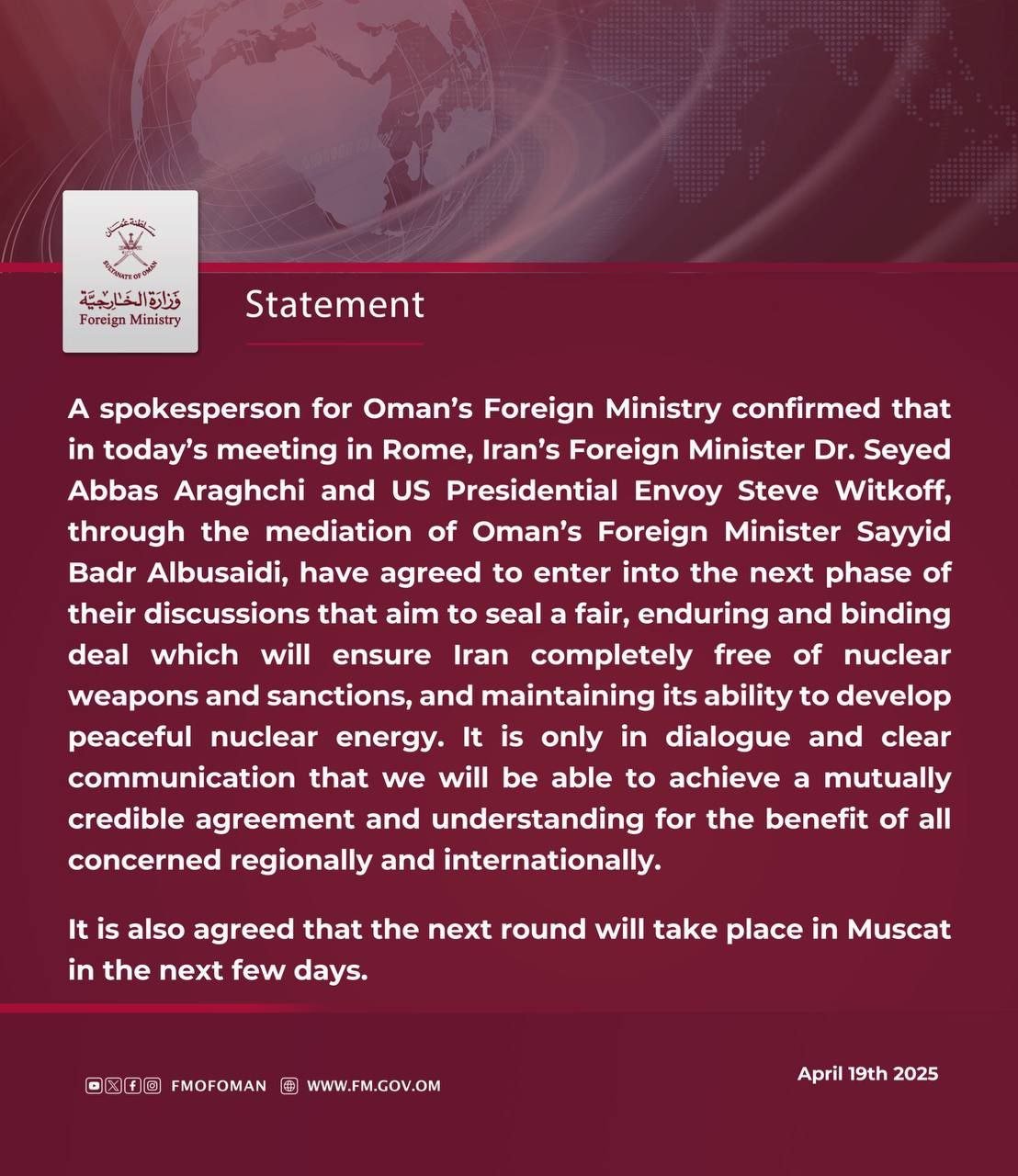Iran Shifts Blame to Israel as Nuclear Talks With U.S. Show Cautious Progress
Executive Summary
Amid a fragile return to nuclear negotiations between the United States and Iran, Tehran is publicly blaming Israel for obstructing progress toward a nuclear weapons-free Middle East. Speaking in Rome ahead of indirect U.S.-Iran talks, Iranian Foreign Minister Abbas Araghchi denounced Israel as the “sole obstacle” to regional disarmament, even as both Washington and Tehran reported modest breakthroughs in discussions. The remarks highlight Iran’s diplomatic strategy: cast Israel as the provocateur, the U.S. as potentially flexible, and itself as a reasonable actor defending national sovereignty and peaceful nuclear ambitions. While negotiations continue under Omani mediation, U.S. and Israeli intelligence sources remain skeptical of Iran’s intentions and warn that military action remains on the table if diplomacy fails.
Analysis
As the second round of indirect U.S.-Iran nuclear talks concluded in Rome, Iranian Foreign Minister Abbas Araghchi reiterated Tehran’s standard line: Iran does not seek nuclear weapons, and the only thing preventing a nuclear-free Middle East is Israel. These statements were carefully timed for maximum visibility, taking place ahead of a third round of negotiations and immediately following revelations that President Trump had paused Israeli military plans to strike Iran’s nuclear infrastructure.
Iran’s narrative is clear: Israel is the destabilizing force, not Iran. Araghchi framed Iran’s nuclear program as peaceful and grounded in religious doctrine, while condemning Israel for “genocide” and “Iranophobia.” He also praised Italian and Omani diplomacy and declared Iran’s openness to an agreement—so long as it respects Iran’s rights and ends sanctions.
The political theater is happening against a volatile backdrop. Strategic reports indicate the world is sliding toward broader conflict, with NATO forward-deploying troops, Turkey entrenching itself in Syria, and Israel increasingly aggressive in regional airstrikes. Iran, for its part, has laid out firm red lines. According to Supreme Leader Khamenei’s advisors, Iran will not dismantle centrifuges, halt uranium enrichment, or negotiate over its missile program. These terms have already derailed previous U.S. efforts and present a challenge for Trump’s renewed diplomatic push.
Despite the uncompromising rhetoric, both sides claim progress. U.S. envoy Steve Witkoff and Araghchi reported productive conversations, though Iran insists the 2015 JCPOA framework is obsolete. Talks are expected to continue in Oman, where technical experts will refine potential terms ahead of a third high-level round. Meanwhile, Trump is signaling he’s not rushing to military options, despite maintaining a credible threat. “If there’s a second option,” he said, “it would be very bad for Iran.”
However, skepticism abounds. Israeli intelligence has reportedly warned that Iran may be stalling for time while moving closer to weapons capability. The possibility of an Israeli preemptive strike remains alive—though likely delayed until the outcome of Trump’s diplomatic track is clear. Araghchi’s recent visits to Moscow and discussions with Vladimir Putin and Sergey Lavrov also indicate that Iran is hedging its bets with support from Russia.
The message from Tehran is calculated: Iran is willing to negotiate, but not capitulate. The message from Washington is mixed: optimism paired with caution. And from Jerusalem: growing anxiety and readiness for unilateral action.
The road to a new nuclear deal remains uncertain. What is clear is that Iran continues to shape the narrative, pinning blame on Israel while positioning itself as a victim of aggression and sanctions. Whether this strategy leads to relief or retaliation depends on what happens in the next few weeks.
Sources
Masirah TV – Israel is the Sole Obstacle to Nuke-Free West Asia, Says Iran’s FM
Ynet – Israel only obstacle to nuclear free Middle East, Iranian foreign minister says
Semper Incolumem – All Signs Point to War in Europe and the Middle East
Semper Incolumem – Iran Rejects Trump’s Offer for Nuclear Negotiations, Calling It “A Deception”
CNN – US and Iran express optimism following second round of nuclear talks
